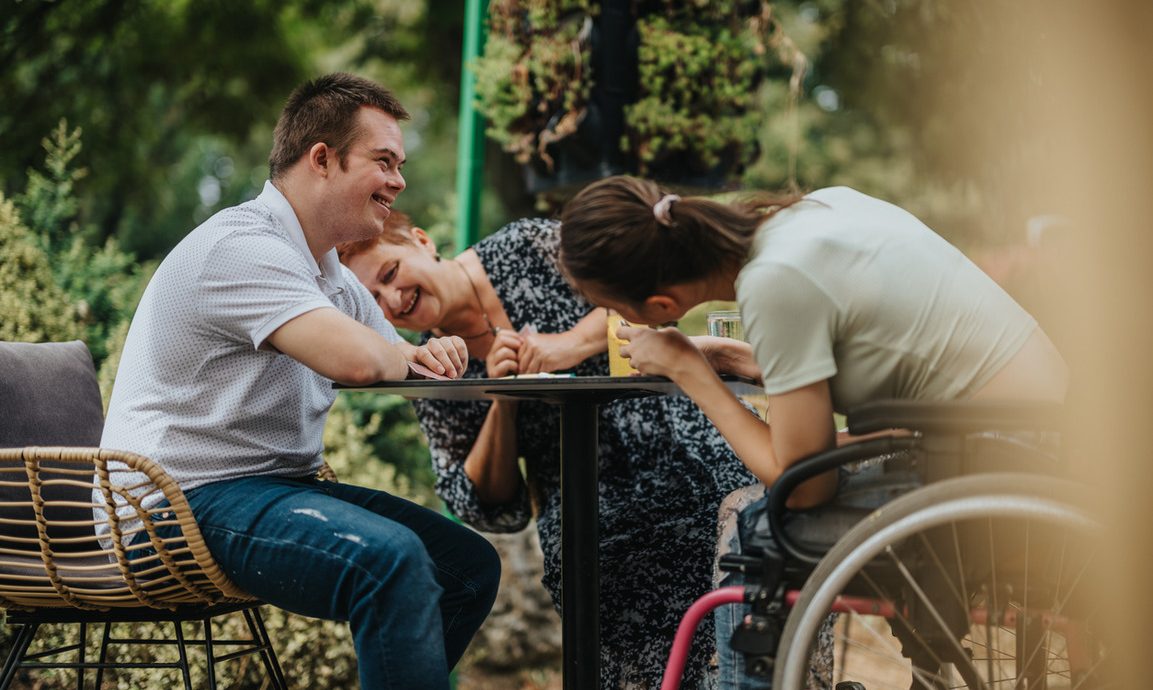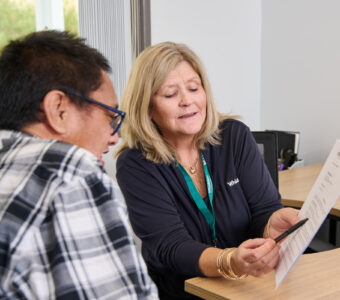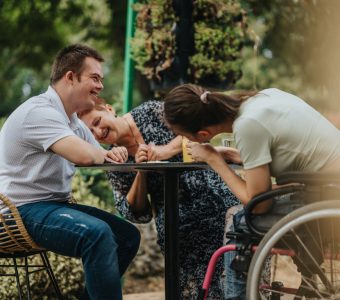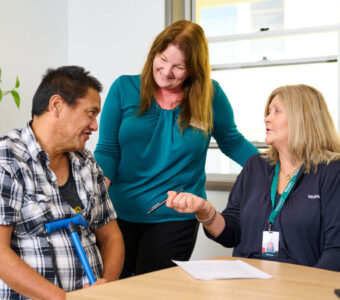
The Benefits of Social and Community Participation for NDIS Participants
For people living with disability, social and community participation can make a profound difference in their lives. It’s more than just assistance; it’s a pathway to greater independence, stronger connections, and enhanced well-being.
Through services like those offered by NDIS providers, individuals can access programs that empower them to participate fully in their communities and build meaningful relationships.
At Whiddon, we’re proud to provide tailored disability services that foster independence and promote inclusion. In this blog, we explore how social support plays a vital role in empowering people with disability and the types of programs available through NDIS.
What Are NDIS Social Support Services?
NDIS social support services are designed to help individuals with disabilities connect with their communities, build relationships, and engage in meaningful activities. These services fall under the umbrella of social and community participation funding, which aims to enhance participants’ social inclusion, confidence, and quality of life.
Services may include:
- Assistance with joining social groups or community activities.
- Support to attend events, classes, or volunteering opportunities.
- Guidance in building social skills and creating personal connections.
NDIS social support is not just about meeting immediate needs; it’s about fostering long-term growth and empowering participants to thrive. Whether through small steps like attending a local event or larger goals like volunteering, these services are instrumental in breaking down barriers and building confidence.
The Benefits of Social Support
Social support provides a wealth of benefits for individuals with disabilities. It’s not only about connecting with others but also about unlocking new opportunities and fostering personal development. Key benefits include:
1. Improved Mental and Emotional Well-being
Social connections are vital for mental health. Participating in community activities can reduce feelings of isolation, boost self-esteem, and promote a sense of belonging. Regular engagement in social settings provides emotional support, helping individuals feel valued and understood.
2. Enhanced Independence
Social support programs encourage participants to step out of their comfort zones and develop their independence. From navigating public spaces to taking part in group activities, these experiences build confidence and empower individuals to take control of their daily lives.
3. Skill Development
Many NDIS community participation activities focus on developing key life skills, such as communication, teamwork, and problem-solving. These skills can lead to greater independence and open doors to new opportunities.
4. Increased Community Engagement
Engaging in social activities helps participants feel more connected to their local communities. It fosters a sense of inclusion and allows individuals to build relationships, pursue interests, and enjoy a greater quality of life.
Types of Social Support Programs
Social support programs are as diverse as the individuals they serve. The flexibility of NDIS community participation ensures that programs are tailored to meet individual needs, interests, and goals. Some common types of programs include:
1. Group Activities
Group-based programs encourage participants to connect with others through shared interests. These can include art classes, music sessions, cooking workshops, or sports activities. Group activities foster teamwork, build friendships, and provide a supportive environment for learning and growth.
2. Individualised Support
For those who prefer one-on-one interactions, individualised support programs provide tailored assistance. These might involve helping someone attend a personal event, take a class, or explore a new hobby.
3. Volunteer and Work Opportunities
For participants interested in giving back to their communities or gaining work experience, social support programs can facilitate volunteering or employment pathways. These opportunities promote independence, purpose, and confidence.
4. Community Outings and Events
Many programs focus on enabling participants to attend local events, visit cultural attractions, or enjoy recreational activities. These outings help individuals explore their communities and build confidence in navigating public spaces.
How Whiddon Supports Social & Community Participation
At Whiddon, we’re committed to empowering people with disability through personalised and inclusive support services. Our NDIS social activities are designed to help participants build meaningful connections, learn new skills and enjoy enriching experiences.
Here’s how we make a difference:
- Tailored Programs: We understand that every individual is unique. That’s why we design programs that align with personal interests, goals, and abilities, ensuring every participant feels supported and valued.
- Experienced Team: Our caring and qualified staff are passionate about fostering independence and inclusion. Whether it’s assisting with daily activities or encouraging participation in social groups, our team is here every step of the way.
- Creative Activities: From art and craft sessions to gardening and storytelling, we offer a range of activities that combine fun with personal development. These programs are not only enjoyable but also carefully crafted to enhance cognitive, emotional, and social well-being.
- Community Engagement: We actively encourage participants to explore their local communities through outings, events, and volunteering opportunities. This fosters a sense of belonging and helps individuals build confidence in real-world settings.
Empowering Through Connection
Social support is a cornerstone of empowering people with disability. It creates pathways to independence, fosters personal growth, and builds meaningful connections. Through social support, individuals can discover new opportunities, develop essential skills, and enjoy a more fulfilling life.
If you or a loved one are exploring NDIS service providers for social support, Whiddon is here to help. With tailored programs, a caring team, and a focus on inclusion, we’re proud to support individuals in achieving their goals and embracing life to the fullest.
Contact us today to learn more about our disability support services.




